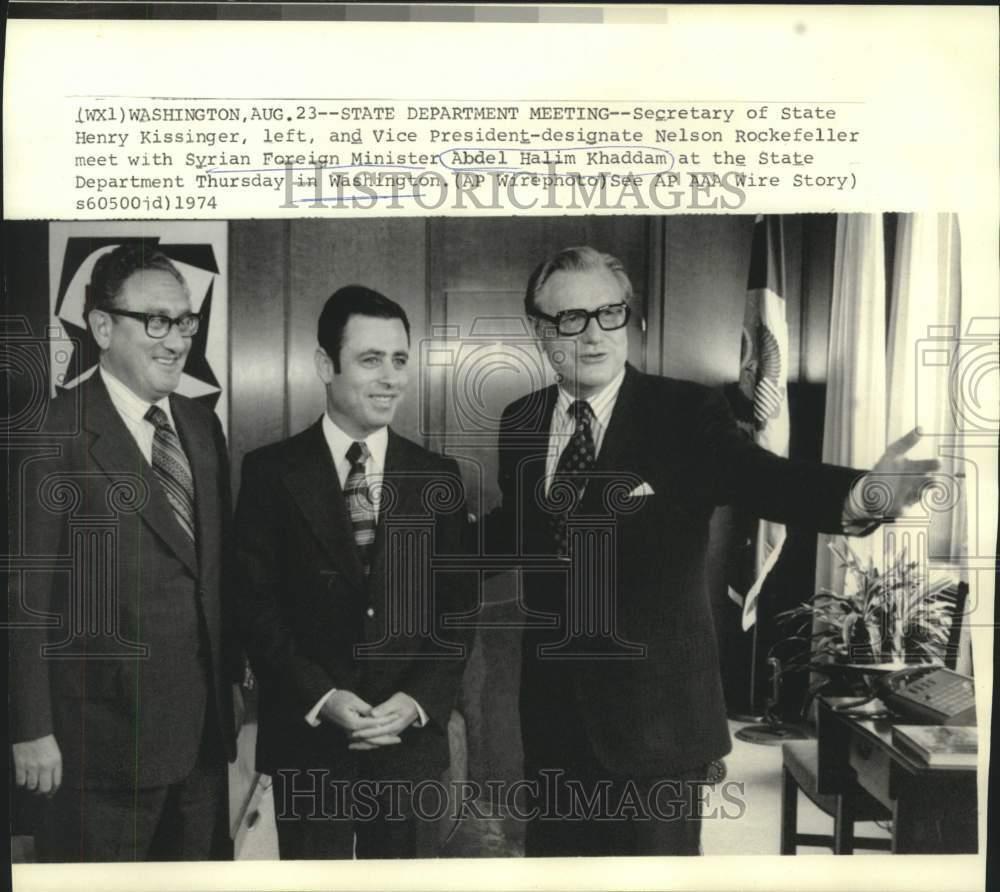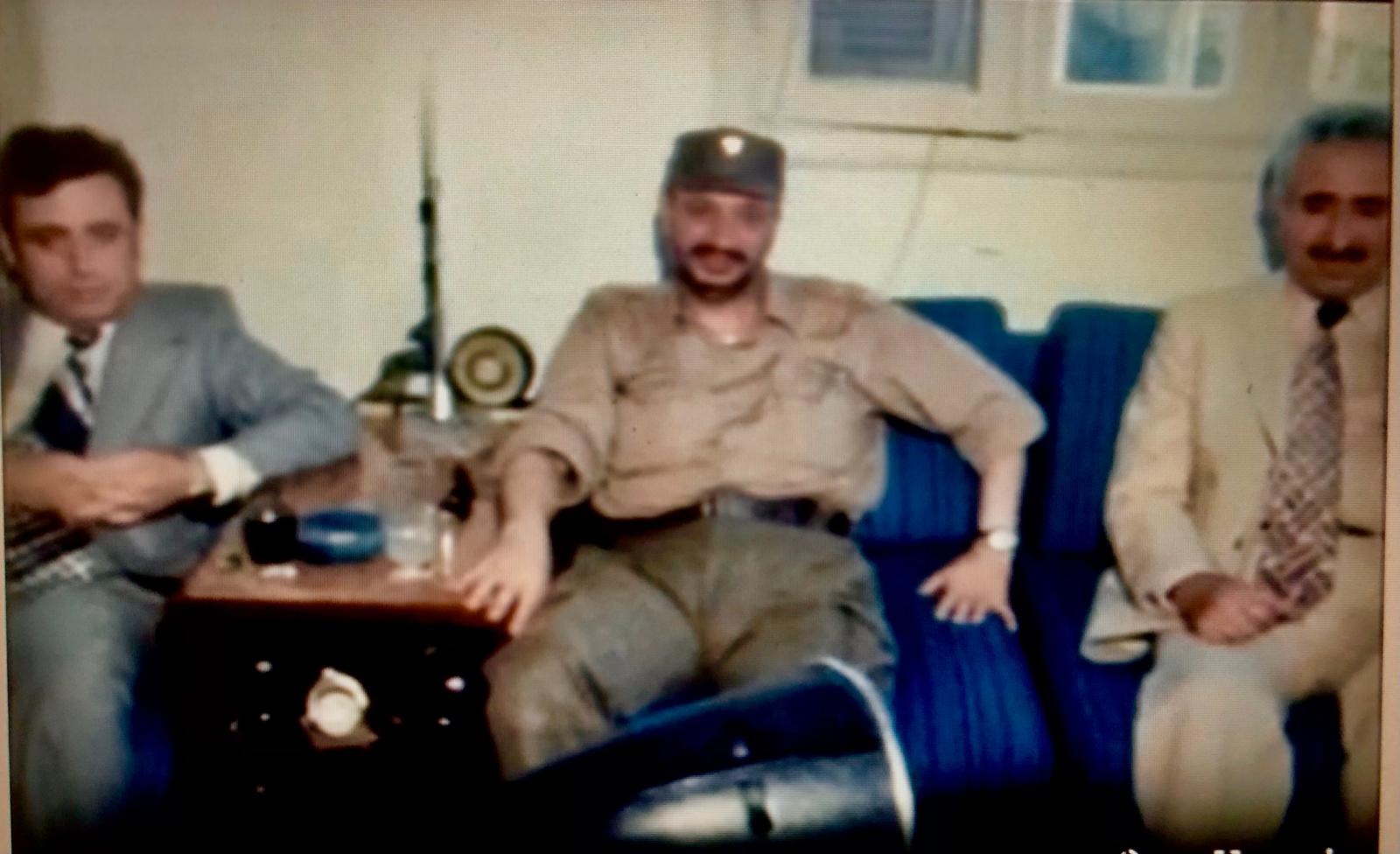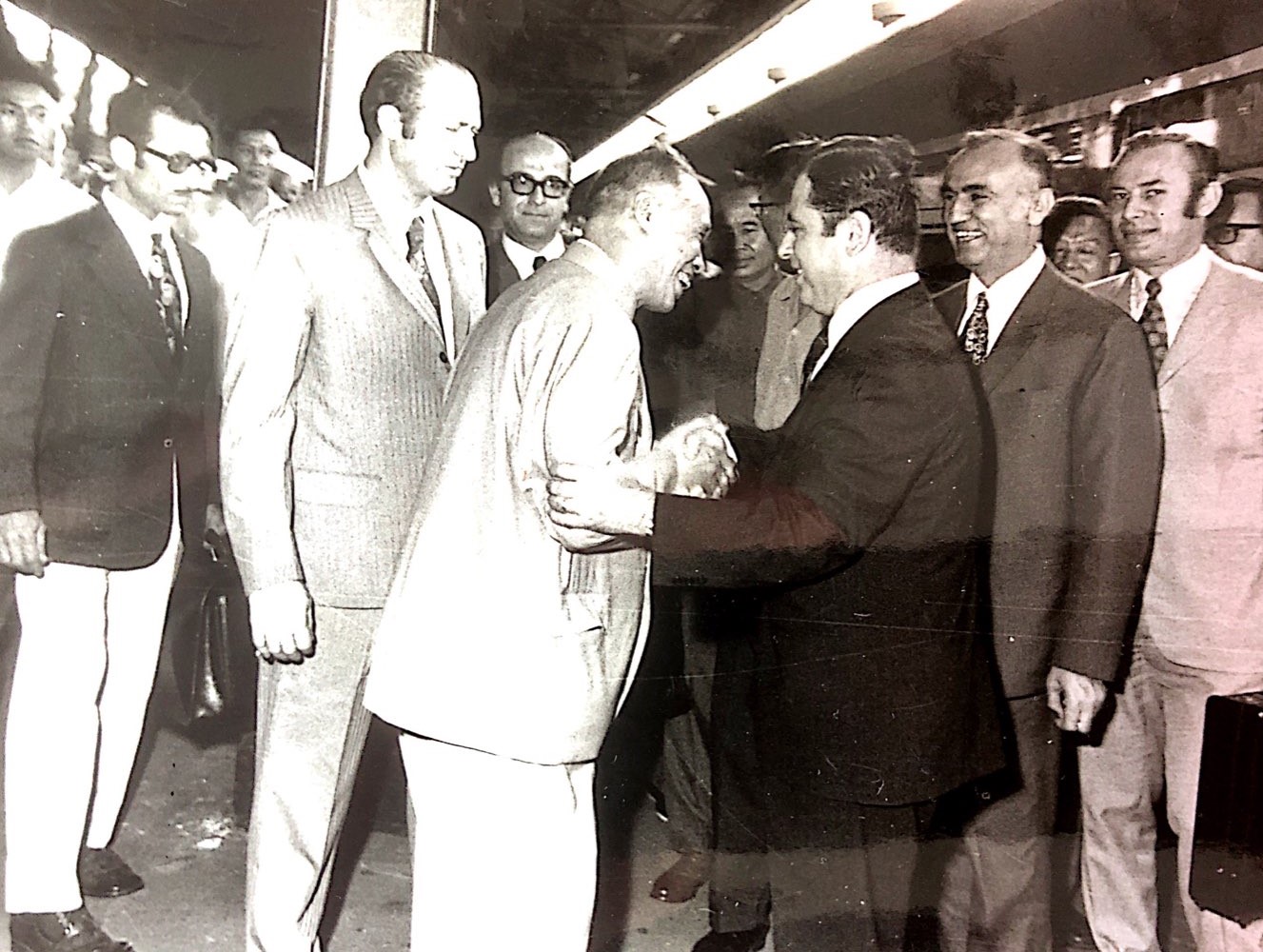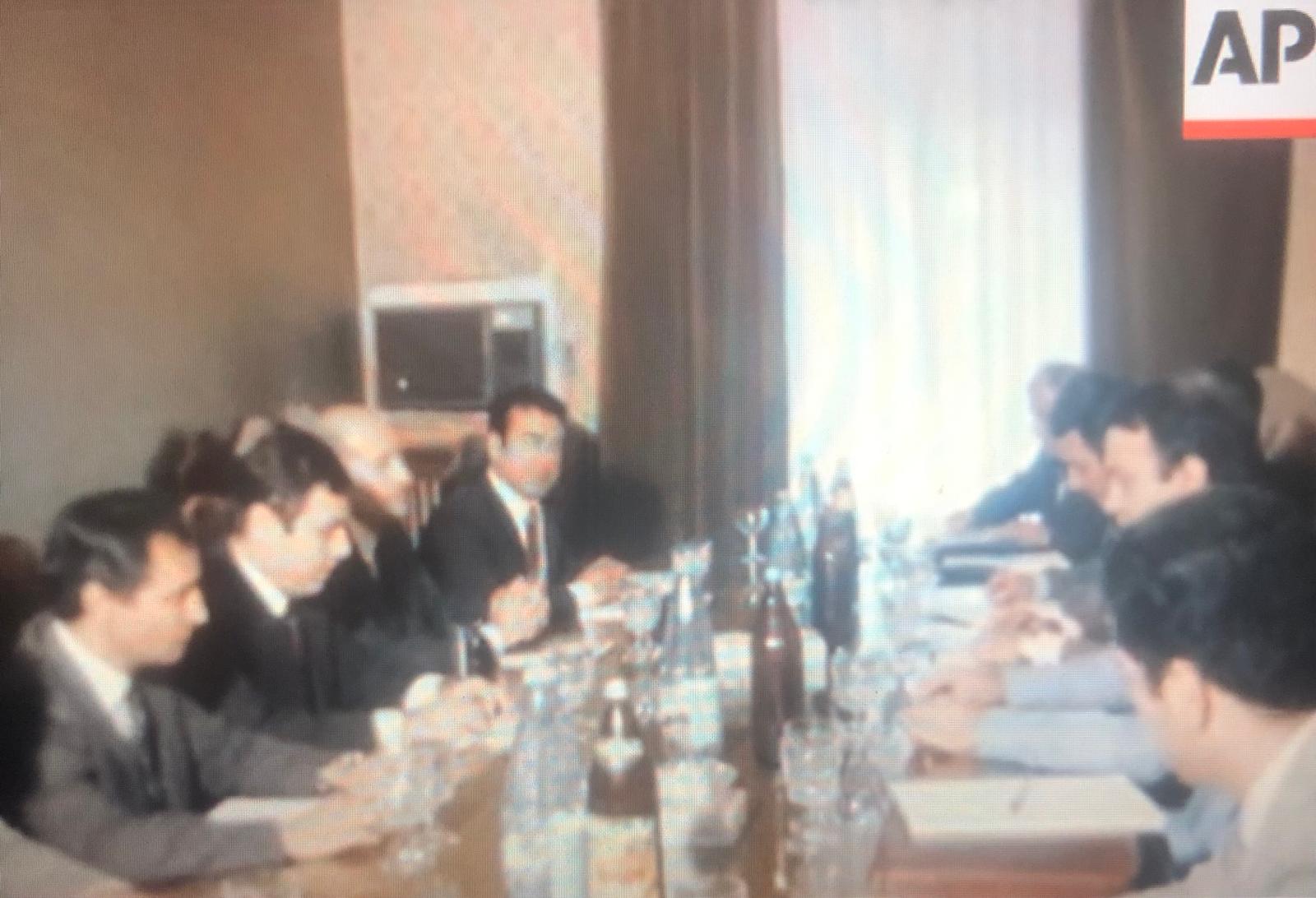According to virtually every official one talks with here, the Syrian Government puts very little trust in Secretary of State Kissinger’s way of seeking a political settlement in the Middle East and is suspicious of President Anwar el‐Sadat of Egypt.
The current visit to Washington of Deputy Premier Abdel Halim Khaddam, who is also Foreign Minister, is regarded without enthusiasm here. Officials see it merely as an opportunity for Syria to restate her familiar insistence on full withdrawal by Israel from occupied Arab lands and recognition of the national rights of the Palestinian people.
Syrians Cool on Geneva
Syrian officials have cooled to the idea, which they championed earlier this year, of an early resumption of the Geneva conference on the Middle East, according to diplomatic sources here.
After consultations with Moscow, the Syrians apparently share the Soviet view that such a conference faces no prospect of success, and could lead to a dangerous impasse if there are no changes in the attitude of Israel and the United States on basic issues.
The Geneva conference, as convened in December, 1973, after the Arab‐Israeli war two months earlier, is aimed at seeking a settlement of all aspects, of the Arab‐Israeli conflict. Mr. Kissinger, by contrast, favors al step‐by‐step approach.
As Mr. Khaddam arrived in Washington, Boris N. Ponomarev, a secretary of the Soviet Communist party who is an influential figure in Arab‐Soviet relations, arrived here for high level consultations.
This visit appeared likely to reinforce the Soviet military and political commitment to Syria’s defenses against Israel, and it came at a time of press reports in Beirut that additional deliveries of Soviet electronic equipment have been made for Syria’s air‐defense system.
Syrian diplomatic activity, which has been very active among Arab countries recently, seems to be based on suspicion that President Sadat may yet make a separate accord for a second‐stage withdrawal by Israeli forces in Sinai, with some form of guarantee of nonbelligerency by Egypt.
Syria Fears Isolation
The Syrians are afraid that such an agreement would leave this country isolated to face Israel alone.
Recent Syrian suspicion of President Sadat appeared to indicate a possible change of position. Before Mr. Sadat met with President Ford in Austria last month, he declared that during a tour of Arab countries he had obtained a mandate to speak for the Arab world, not just Egypt.
On his Arab tour Mr. Sadat spoke with the leaders of Syria, Jordan, Kuwait, Iraq and the Palestine Liberation Organization.
In April, Mr. Sadat and President Hafez al‐Assad of Syria announced that they had agreed to set up a committee to help unify strategy against Israel.
In an effort avoid isolation, President Assad has been seeking military coordination with Jordan.
Efforts by Syria to mediate in Lebanon’s political crisis are also seen in this light.
The Syrians have also compromised in a quarrel with Iraq over waters of the Euphrates River, which flows through Syria to Iraq and the Persian Gulf.
In an unexpected gesture, Syria agreed recently to extend the mandate of the United Nations peace‐keeping forces on the Golan Heights for six months.
Syrians Confer In Egypt
Egypt and Syria opened talks tonight aimed at coordinating their future military and political strategy.
Premier Mahmoud al‐Ayoubi arrived at the head of a strong delegation, including the Defense Minister, Maj. Gen. Mustafa Tlas.
The talks were convened in Alexandria within the framework of a newly formed joint coordination committee.




